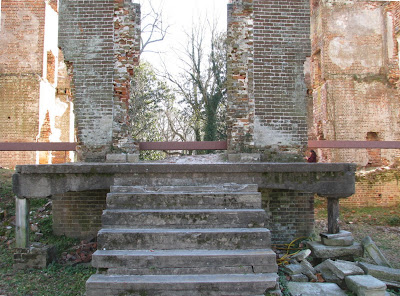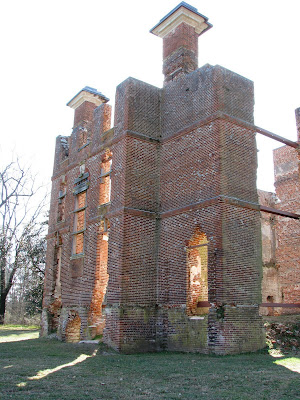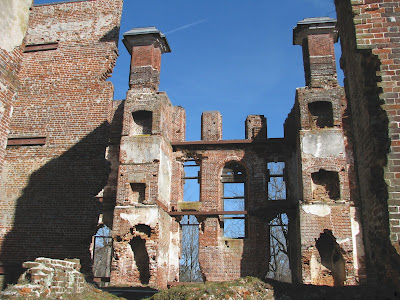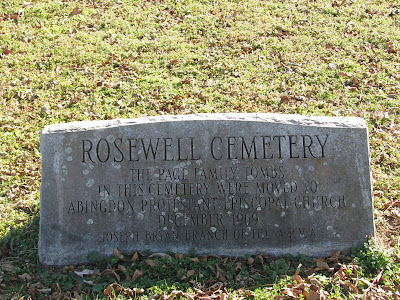
Today I returned to Rosewell Ruins in Gloucester VA. I had visited this location last spring and had been wanting to return. All was quiet today but I can certainly see why this place is suppose to be haunted.
Stories have been told at Rosewell. Everything from slaves buried in the Cellar walls, to a mysterious lady who walks the front steps every night.


From Wikipedia,
Rosewell Plantation in Gloucester County, Virginia, USA for more than 100 years was the home of members of the Page family, one of the First Families of Virginia. Begun in 1725, the huge brick Rosewell mansion overlooking the York River was one of the finest in Virginia. Through much of the 18th century and 19th centuries, and during the American Civil War, Rosewell Mansion hosted the area's most elaborate formal balls and celebrations.

Rosewell Mansion and part of its history were described by author James Joseph McDonald in "Life In Old Virginia" (The Old Virginia Publishing Co., Norfolk, Va., 1907) thus:
"The mansion is substantially built of brick, three story and basement. The foundation walls are three and one-half feet thick. The reception hall is large, the ceilings lofty, and the whole mansion is indicative of refined taste and wealth. From the upper windows, a magnificent view is had of the surrounding level lands and the waters of the creeks and the York River.
"During the life of Governor Page, Thomas Jefferson was a frequent and welcome visitor there. While on one of his visits he wrote the rough draft of the Declaration of Independence in what is now known as the 'Blue Room,' situated on the northwest corner of the second story of this house."
The elaborate Flemish bond brickwork, the towering three stories, and the siting of the mansion were all meant to recall elaborate London homes of the era. In that sense, Rosewell was among the most sophisticated early buildings built in America.

The Rosewell Mansion was destroyed by fire in 1916. Today, a largely undisturbed historic ruin, the site has been the subject of archaeological work which has revealed many artifacts and shed light on some aspects of colonial life and architecture previously unclear.

Page family of Virginia
Governor of Virginia John Page (1744-1808) was the grandson of Rosewell's first owner, Mann Page (I). He grew up there, and was a classmate of Thomas Jefferson at the College of William and Mary in nearby Williamsburg where he graduated in 1763. John Page fought during the American Revolutionary War, attaining the rank of colonel. He also served multiple terms in the U.S. Congress and the Virginia General Assembly.
Other notable members of Virginia's Page family also include Governor Page's brother Mann Page III, his great grandfather, Colonel John Page of Jamestown and Middle Plantation, author and U.S. Ambassador to Italy Thomas Nelson Page, and Virginian Railway builder William Nelson Page; Confederate General Richard Lucian Page.

A family legend says that the courtship of John and Margaret Lowther Page began with an exchange of poems.
In 1790, John Page was a 47-year-old widower serving in the First Congress of the United States. Congress was meeting in New York, and it was there that he met Margaret Lowther, who was about 30 at the time. According to the legend, John escorted Margaret to a party and later realized that she had left a glove in his carriage. He sent the glove back to her with a note reading
"Taking 'G' from 'Glove' leaves 'Love'
Tis that I offer thee."
Margaret replied with another note:
"Taking 'P' from 'Page' leaves 'Age,'
And you are too old for me."
Perhaps Margaret was only teasing, or perhaps she soon had a change of heart, for the couple was married a few months later. They continued to write and exchange poems during their marriage.

Labels: Local Hauntings




















